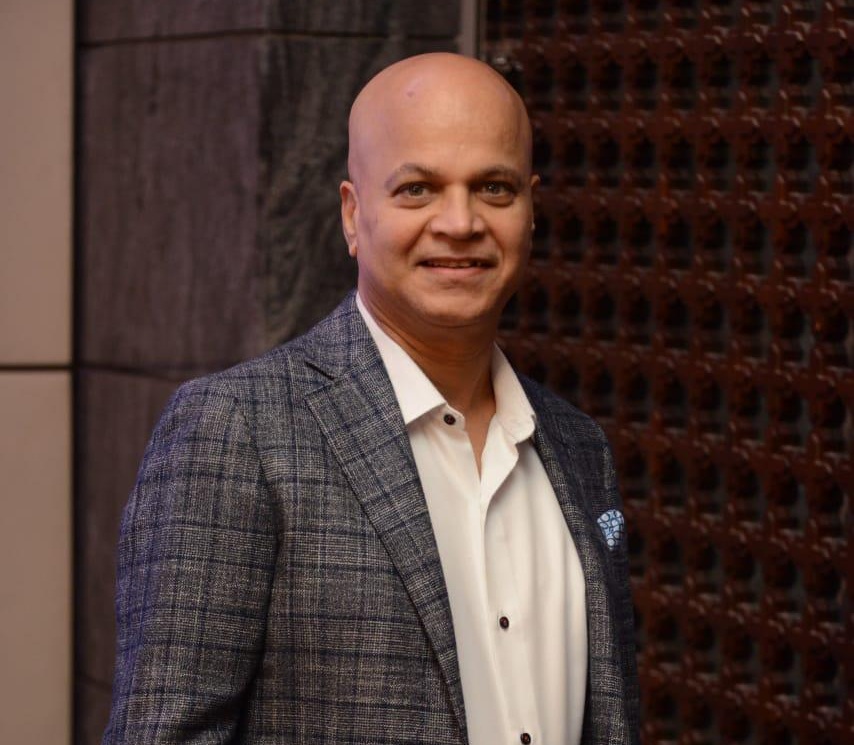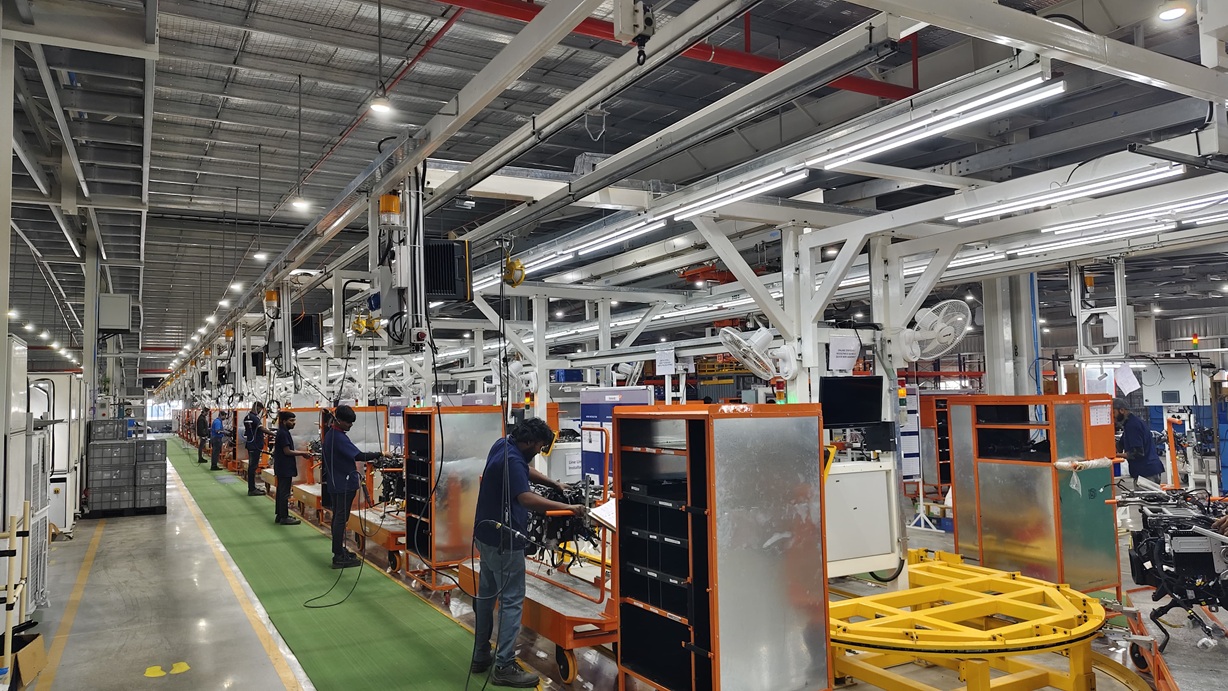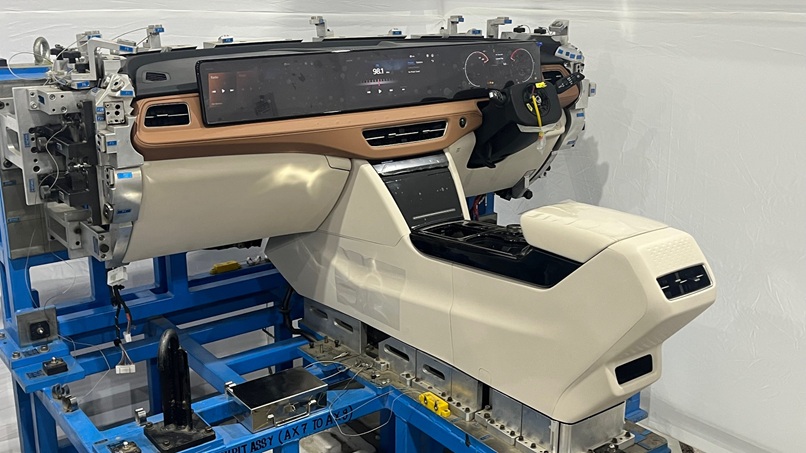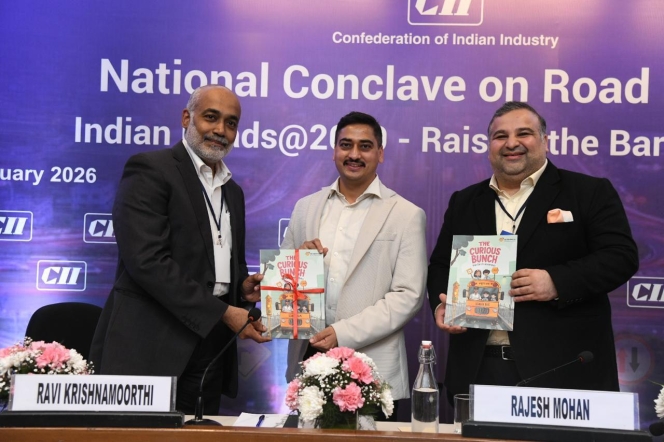Turtle Wax Aims To Be Leader In DIY Segment In India
- By Sharad Matade
- December 19, 2020

Turtle Wax, a global name in the car care industry, entered the Indian market this year. With its aggressive plans and the ongoing demand for car care products, the company aims at becoming one of the largest care car product suppliers in Doing It Yourself (DIY) segment, besides, establishing a strong presence in Do-It-For-Me (DIFM) space.
According to Sajan Murali Puravangara, Country Manager and Director, Turtle Wax India, the car care industry is an integral part of the automotive industry, and changing buying preference from the mileage, and low maintenance to aesthetics, safety, comfort and features are fuelling demand for car care products.
“India has been witnessing good growth in car sales in last decade, whereas in the last five years, we see traction in the car care industry on account of changing trends or reasons to buy a car. In recent years, the way people look at the car has changed. They buy cars for the looks and features, and that also led to an interest to keep their cars new, tidy and clean; this is bringing demand for car care products. The interest is also coming from the mass car segment. In the last two years, we are getting the indication that the car care industry will be the next sunshine industry in the future,” explained Puravangara.
Turtle Wax, a family-owned company, has been in the car care business for nearly 75 years and operates in over 120 countries. Before establishing its third subsidiary in India, the company has been operating with two subsidiaries- the US and Europe.
India has a population over 1.3 billion and only 22 people out of a thousand own car, while in the US and UK, 980 and 850 per 1,000 individuals have a car, respectively. The massive headroom for the car segment in the next one-and-a-half-decade will trigger further growth for the car care segment in the long term, opines Puravangara.
According to a research report, the current car care industry in India is slightly less than one billion USD and expected to reach $1.44 billion in 2027. Explaining the growth factors, the report says, people usually keep their cars for more than seven years in India, and hence car care products are being increasingly used to restore the paint and for detailing and interiors. Along with this, many car care product manufacturers from Europe and North American markets have their presence in India through e-commerce websites and strong dealership networks. The same report adds that by 2027, the interior car care product segment will be around of $0.73 billion, while the exterior car product market will grow to USD 0.7 billion.
Consumer behaviour, cheap labour, and lack of necessary know-how make the Indian car care industry more challenging for the companies to operate in the DIY space.

In western countries, cars are a part of the family, and family members take basic care. In the US and other developed countries, the DIY segment is about 80 percent of the total car care industry; however, in India, it is of around 30 percent. “In countries like India, due to the hectic work schedule and cheap labour, DIFM dominates in the car care segment. There is always a third person to take basic care of cars in India. Coupled with this, the know-how is fairly lower in India when it comes to basic things such what wax can do to your car and what are the ways to protect cars’ interior and exterior,” Puravangara said.
However, the pandemic in the last eight months has proven useful for the car care segment. “We have seen momentum in the DIY business in the last six months. Since people have been at home, they have a lot of time at their disposal. They find time to take care of their cars. We are also seeing people are increasingly enquiring on different social media platforms on how to take care of their cars and sharing other issues,” he said.
As a part of the strategy to penetrate its products, the company will heavily focus on educating consumers on primary car care and the company’s products. “Being a global leader in the car care industry, it is our top priority to educate people on car care, know-how and our product usages and benefits.”
In the next three to four months, the company will start campaigns on social media channels. The campaign will invite consumers with their queries or to share their experience and issues.
“The company will also bring out videos on how to use our products and use the social influencers on YouTube and Instagram,” Puravangara said.
Though India is seeing a growing number of women behind in the wheel, the car care industry is yet to consider women as their potential customers. However, Turtle Wax understands the role of women in the overall automotive industry and expects the growing number of women car owners evidently will reflect in the car care industry.
To widen its customer base, the company will also promote the car wash as a family celebration where family members will take participate in washing, cleaning and taking care of the car. “Washing and cleaning cars is a family affair in many countries, and therefore the company will be promoting the same in India as well,” added he.
However, external factors that also possess further challenges for car care products. Considering vast territories, different weather, pollutions and scarcity and quality of water put car care product performance under severe pressure. Keeping the external challenges in mind, the company plans to bring in products that are suitable to the Indian markets.
“A larger challenge is not only the availability of water but the hard water which leaves marks on the car. Coupled with this, extreme temperature and dust and pollution affect the car. We are bringing in the products that will take care of cars in the Indian environment. We have asked the company to make products suitable for the Indian market,” said the executive.
Currently, the company offers the products required to clean, shine and protect the car inside out. The product portfolio includes shampoo to clean, wax to shine and various interior cleaners in the form of foam and liquid to clean the interiors of the car. It also offers various speciality products like trim restorer, chrome polish, headlight lens restorer, Odor-X Odor removing solutions, etc. to address specific car care requirements. Turtle Wax also has a ceramic coating that has 10H hardness which gives the high gloss, ultra-hydrophobicity, extreme chemical resistance, UV protection and easy cleaning properties. The company plans to bring in graphene-based ceramic coating solutions, which is the new technology in the car care industry.
The company is planning to bring 75th-anniversary Ceramic Paste Wax in Q1 2021, and will also introduce windshield washer fluid shortly in India. Other products from the company for the India market include all-metal polish that polishes all metal surfaces of the car’s exterior; Glass cleaner to keep the glass streak-free during the ride; ClearVue Rain Repellent that helps get better visibility during the monsoon rains; Trim Restorer since the Trims fades here in India more than the rest of the world and Windscreen washer fluid to remove the dirt and grime from the windshield glass.
The company will also introduce waterless washing products that cater to areas where water is scarce. The company’s waterless wash and wax has advanced polymer technology that lifts dirt to prevent starching, while the enriched wax gives a shiny and protective finish. Its rain repellent formula prevents watermarks and extends time in between cleaning.
The company will also bring in its Turtle Wax Hybrid Solutions ICE Seal N Shine, premium car paint sealant. The ICE Seal N Shine gives the car a layer of super-hydrophobic silicone for up to six months of protection against streaks, scratches and swirls.
To set up its network, the company will go through a distribution route and for which it has selected 23 cities, which have larger car density. Turtle Wax India is appointing own distributors in these cities who will take care of retailers and workshops. It has also identified another 48 towns in which it will supply products to dealers who will provide the products in the respective markets.
“We will have our main presence in all metro cities including Chennai, Hyderabad, Bangalore, Delhi-NCR, Kolkata, Pune, Mumbai, and additional upcoming cities like Ahmedabad, Coimbatore, Cochin, Surat etc,” he added.
The company plans to have about 10,000 outlets by the end of next June. Turtle Wax India has also set up the car care studios in Pune, Bangalore and New Delhi. The studio will be not based on a franchise concept; instead, it will be a co-branded activity. “We provide our products and branding support, but the studios also keep their brand identity,” he said. The company also has plants to have such studios in its 23 cities.
Puravangara declined to share the current revenue and future commercial targets but said sales numbers are increasing with each passing month. Currently, the company is importing its products from global subsidiaries, but he said the company will have a look into setting up local production capabilities. “The way it is going, we will have to do something locally as well. I don’t think we will be able to manage (the demand) with our global support when the demand goes up,” he said.
The company is looking for an option of re-packaging under which it will get bulk products and repack for the domestic market. “We will also see if some India oriented products will be manufactured here, completely. Those options are quite open,” he added.
Many Indians are using hair shampoo sachets to wash cars. When asked whether the company is looking to introduce car wash shampoo in sachets, he said it will not look into sachet option but will be looking to have a bottle of 100 to 200 ml. “We are still looking at those options of small bottles, but per wash, cost increases with smaller bottles,” he added.
Talking on the challenges, he said, it is on finalising the complete product portfolio that suits to the rapidly changing requirements of the Indian market. “We need to keep reinventing on products to be a leader in the market,” he concluded. (MT)
- IAC India
- Lumax Group
- IAC Group
- Mahindra
- VECV
- Maruti Suzuki India
- Skoda
- Volkswagen
- Stellantis
- Sunil Koparkar
IAC India Bets On Engineering Depth & Diversification, Targets 20% CAGR Growth Till FY2030
- By Nilesh Wadhwa
- February 28, 2026

Sunil Koparkar, Managing Director, IAC India, outlines the company’s strategy to reduce customer concentration, expand exports and leverage group synergies following its integration with the Lumax Group.
As India’s automotive interior market evolves towards premiumisation, localisation and faster product cycles, IAC India, part of the Lumax Group, is repositioning itself beyond a single-customer dependency model – without diluting its core partnerships.
IAC India continues to derive a significant share of its revenue from Mahindra’s passenger vehicle business. While the concentration remains high, Koparkar is clear that diversification will be driven through growth rather than dilution.
“Mahindra will always be our primary customer. We have a very strong strategic partnership. But we are also working on expanding with other OEMs and in the commercial vehicle space. Our goal remains a 20 percent CAGR,” he says.
For FY2025, IAC India USD 140 million in revenue, and is targeting a 20 percent growth in FY2026. The company counts Mahindra as its primary customer with almost 78 percent of its business coming from them, while Maruti Suzuki India (12%), Volvo Eicher Commercial Vehicles (5%), Skoda-Volkswagen (3%) and Stellantis (1%) contribute towards the remaining business.
 What’s more, responding to the company’s expansion plans, Koparkar revealed, that IAC Group, in addition to introducing new products, is also in talks with new-age players who have just entered Indian market (and also planning too) for supplying products.
What’s more, responding to the company’s expansion plans, Koparkar revealed, that IAC Group, in addition to introducing new products, is also in talks with new-age players who have just entered Indian market (and also planning too) for supplying products.
Currently, passenger vehicles account for roughly 90 percent of the business, with commercial vehicles forming the balance. Value-wise, Koparkar expects CV contribution to rise, even if percentage splits remain broadly similar due to the rapid growth of PV volumes.
Responding to a query on the potential growth from the CV segment, Koparkar said, “There is clear potential in CV interiors. As the CV market moves towards more comfortable cabins — with features like airbags, HVAC and infotainment — the opportunity for interior suppliers increases. Through Volvo Eicher, we have already helped drive that trend in India.”
When asked about the company’s expansion plans, Koparkar also stated that IAC Group is open to expanding to new regions as it aims to operate closer to its customers. One of the potential new projects for the company could very well be Chennai, as the company is in early talks with a new CV customer as well as VinFast.
Engineering as a Standalone Growth Lever
A key pillar of IAC India’s strategy is its expanding engineering capability. The company has been scaling up its R&D and product development team and increasingly positioning engineering services as a distinct revenue stream.
The company at present, employs over 300 engineers in India, which it aims to scale it upto 400-plus by next year and 500-plus in the coming few years.

Historically, the Indian Engineering Centre supported the global IAC Group. “We were primarily the IAC Group engineering development centre. We will continue to provide those services. But now, besides global support, we are also offering engineering services to local OEMs,” Koparkar explains.
These services span studio collaboration, basic product design, CAE analysis and prototype development. In some cases, this can potentially evolve into full-scale supply programmes.
Importantly, innovation is now being formalised locally. “This year alone, we are in the process of filing about 30 patents,” he says. Earlier, intellectual property was subsumed under the global entity; now, filings are being initiated in India.
R&D investment remains aligned with group benchmarks at around 1.5–2 percent of revenue.
Exports: Measured Ambition
In terms of export potential, it currently contributes less than 5 percent towards the revenue, primarily through smaller kinematic parts. Direct exposure to the US market is negligible.
“Tariff-related uncertainty does not affect us because we do not export to the US,” Koparkar says. “Logistically, it does not make sense to ship our large interior parts there.”
Europe remains the primary export target. “The opportunity lies in leveraging our design capabilities and local development strengths. If logistics can be managed efficiently, there is room to grow.”
He also sees the Lumax Group’s aftermarket division as a future vehicle for export expansion.
Localisation and Supply Chain Resilience
On the localisation front, IAC India has made significant progress. “Last year was the first time we were able to localise over 99 percent of our tooling and development in India,” Koparkar states. Machinery on shop floors is largely localised, with only certain raw materials still imported.
The semiconductor crisis, he adds, had minimal direct impact. “We do not source electronics for our products — that is handled by the customer. However, from a development perspective, we are evaluating secondary substitutes for imported components, so we are prepared in case of disruptions.”
Premiumisation, Sustainability and AI
Premiumisation is currently the dominant interior trend. “Customers are moving away from basic plastics to more premium-feel interiors. Electronification is a big driver,” Koparkar says.
Sustainability, however, remains nascent in India. “There is no specific push for sustainable materials yet. What OEMs are looking for is lightweighting to meet upcoming CAFE norms. If a sustainable material delivers significant weight reduction, then it becomes serious.”

He points to jute, coir and bamboo fibres as potential alternatives but stresses that ecosystem-level collaboration is essential. “Unless a circular economy develops around us, sustainable materials will struggle to scale.”
On automation, operations across IAC’s six plants are roughly a 50:50 mix of automated and manual processes, depending on volume justification. Cobots and semi-automation are used where full automation does not offer viable returns.
AI, meanwhile, is expected to influence design more than manufacturing. “We see AI helping us accumulate design learnings and reduce design cycle times. Its impact will be more visible in engineering services than on the shop floor.”
Faster Development Cycles
Product life cycles are shrinking rapidly. “It used to take five years to develop a car,” Koparkar reflects. “With the XUV700, we worked with the customer to shrink that to 42 months. EVs are being developed even faster.”
As development timelines compress and interiors become more technology-intensive, IAC India is betting on engineering depth, localisation strength and group synergies to sustain its 20 percent growth ambition – while steadily broadening its customer and geographic footprint
- Rosmerta Technologies
- The Curious Bunch
- CII National Conclave on Road Safety
- Dr Rajesh Mohan
- Ravi Krishnamoorthi
- road safety
Rosmerta Launches Road Safety Comic Book For Schools
- By MT Bureau
- February 27, 2026

Rosmerta Technologies has launched a comic book titled ‘The Curious Bunch’ at the 3rd Edition of the CII National Conclave on Road Safety. The publication is designed to introduce road safety awareness to children.
The initiative aligns with the Government of India’s ‘4E’ strategy for road safety, which focuses on Engineering, Education, Enforcement and Emergency Care. The comic book aims to address the 168,000 road fatalities reported in India in 2022 by fostering safe habits at a school level.
The comic book uses illustrations to present road scenarios, including pedestrian conduct, school bus safety, traffic signals & the use of helmets, seatbelts and child restraint systems. By educating children, the company intends to influence the behaviour of parents and the wider community.
Rosmerta, a provider of mobility solutions, currently operates technology systems for automated driving tests and AI-based monitoring. The launch of ‘The Curious Bunch’ marks an expansion of its activities into the education pillar of the national safety framework.
Dr Rajesh Mohan, DCP, Gurugram Traffic, said, “When we educate children and instil strong moral and ethical values, the impact travels far beyond the classroom. Children naturally share what they learn. They question, they explain, and they influence conversations at home. In many ways, they become powerful advocates, encouraging their parents to be more aware, more responsible, and more engaged. Over time, this awareness translates into action, because parents are also drivers, commuters, and decision-makers on the road.”
Ravi Krishnamoorthi, Group President, Rosmerta Technologies, said, “Every road accident statistic hides a parent’s anxiety. In 2022 alone, India reported over 168,000 road accident fatalities, according to government data. Road safety is not merely about compliance; it is about compassion and collective responsibility. When a child understands why a red light matters or why a helmet can save a life, they don’t just learn a rule - they become ambassadors of safety within their families and communities. Through ‘The Curious Bunch’, we aim to nurture this awareness early, because the habits we shape in children today will define the safety culture of our nation tomorrow.”
- Maruti Suzuki India
- Transport Department of Tamil Nadu
- Automated Driving Test Tracks
- ADTT
- M K Stalin
- RTO
- CMVR
- Rahul Bharti
Maruti Suzuki Commissions Seven Automated Driving Test Tracks In Tamil Nadu
- By MT Bureau
- February 27, 2026
Maruti Suzuki India, in partnership with the Transport Department of Tamil Nadu, has announced the commissioning of seven Automated Driving Test Tracks (ADTTs) in the state. The facilities were inaugurated by the Chief Minister of Tamil Nadu, M K Stalin.
The tracks are located at Regional Transport Offices (RTOs) in Coimbatore (Central), Tiruvannamalai, Krishnagiri, Madurai (North), Sivagangai, Dindigul, and Tiruchirappalli (West). These sites form part of a Memorandum of Agreement to automate ten tracks across the state, with the remaining three at Tirunelveli, Tuticorin and Marthandam scheduled for operation shortly.
The ADTTs are designed to evaluate applicants for two-wheeler and Light Motor Vehicle (LMV) licences. The system removes human intervention from the evaluation process to ensure objective testing according to the Central Motor Vehicle Rules (CMVR).
Key technical components include:
- Video Analytics: High-definition cameras to monitor vehicle movement and path adherence.
- Sensors: Radio Frequency Identification (RFID) and Harnessing AutoMobiles for Safety (HAMS) technology.
- Identification: Face-recognition systems to verify candidate identity.
- Results: Integrated IT systems that generate test results automatically based on real-time data.
The carmaker has commissioned 56 ADTTs across eight states, including Uttar Pradesh, Delhi, and Bihar. Following the completion of agreements with Rajasthan and Andhra Pradesh, the company’s footprint is expected to reach 81 tracks nationwide.
Rahul Bharti, Senior Executive Officer, Corporate Affairs, Maruti Suzuki India, said, “As part of Maruti Suzuki’s road safety initiatives implemented across multiple states, we are partnering with the Government of Tamil Nadu to strengthen the driver licensing evaluation process through the deployment of 10 Automated Driving Test Tracks (ADTTs). Equipped with high-definition cameras and advanced analytics, these ADTTs enable a comprehensive, efficient, and transparent assessment process. It eliminates any human bias and ensures that only skilled drivers are awarded a license.”
“According to data shared by the Ministry of Road Transport & Highways, India witnessed 1.77 lakh road accident deaths in 2024. Promoting disciplined driving practices and ensuring rigorous driver evaluation are vital to prevent road accidents and augment road safety across the country,” he said.
BYD To sponsor BVRLA Annual Dinner 2026
- By MT Bureau
- February 26, 2026

BYD, the world’s leading manufacturer of New Energy Vehicles, will once again serve as the headline sponsor for the British Vehicle Rental and Leasing Association (BVRLA) Annual Dinner in 2026. This marks the third consecutive year the company has supported the prestigious event, which is set to take place on 4 March 2026 at the JW Marriott Grosvenor House Hotel on Park Lane, London. The dinner is widely recognised as the premier gathering for professionals across the rental, fleet management and leasing sectors.
Through its ongoing sponsorship since 2024, BYD reaffirms its commitment to this vital segment of the UK automotive market. The company’s expanding presence was underscored in 2025 by the introduction of several new models, including the SEALION 7, DOLPHIN SURF, SEAL 6 Saloon and Touring and the ATTO 2. These launches contributed to significant sales figures, with 21,824 units delivered to fleet customers and 5,964 to the rental sector. The momentum has continued into 2026 with the debut of the SEALION 5 DM-i, while the ATTO 2 DM-i and ATTO 3 EVO are expected to arrive shortly. Supporting this growth is a dedicated UK fleet team of 11 specialists, offering tailored product and service expertise.
The BVRLA represents around 1,000 member organisations, ranging from SMEs to large public companies, all operating within or alongside the UK’s vehicle rental and leasing industries. By engaging with government and upholding professional standards, the association enables its members to provide safe, sustainable and accessible transport solutions. This year’s Annual Dinner will feature the presentation of the Industry Hero Awards and live entertainment from award-winning comedian Tom Ward, celebrating excellence across the sector.






Comments (0)
ADD COMMENT